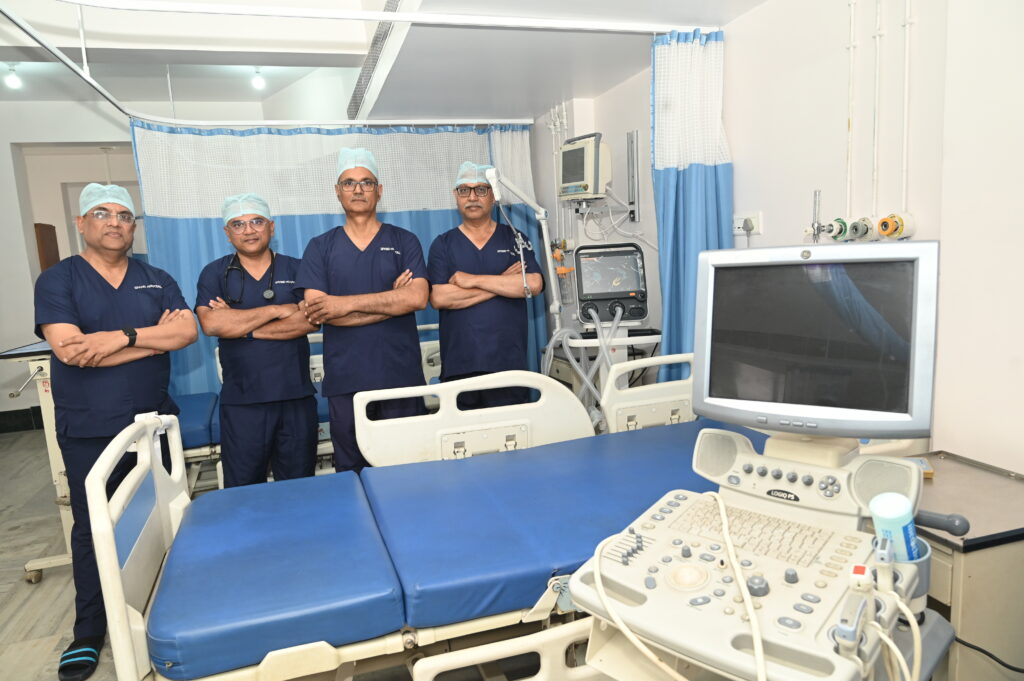The monsoon brings welcome relief from the summer heat—lush greenery, cool breezes, and the scent of rain-soaked earth. But for those living with diabetes, this beautiful season also brings a unique set of challenges that are often overlooked.
Fluctuating blood sugar levels, infections, and lifestyle disruptions are just a few of the concerns. If you or a loved one is managing diabetes, knowing how the monsoon affects your health can help you take the right precautions.
At our diabetes care unit in Jamshedpur, we see a noticeable increase in complications during the rainy season. Here are 5 powerful ways the monsoon impacts people with diabetes—and what you can do to protect your health.
1. Fluctuating Blood Sugar Levels
Humidity, temperature changes, and altered meal routines during the monsoon can make it harder to maintain stable blood sugar levels. For some, activity levels drop due to staying indoors, while for others, cravings for fried snacks and comfort food increase.
What you can do:
- Stick to regular meal timings.
- Monitor your blood glucose more frequently.
- Avoid oily, spicy monsoon foods that spike sugar levels.
- Keep healthy snacks at hand, especially when travelling.
2. Increased Risk of Infections
High humidity during monsoons creates the perfect environment for bacteria and fungi to thrive. Diabetics are especially prone to skin infections, athlete’s foot, and fungal infections in moist areas like underarms or feet.
What you can do:
- Keep your feet dry and clean.
- Change socks daily and wear breathable footwear.
- Use antifungal powder if needed.
- Don’t ignore small cuts or wounds—treat them immediately.
Our diabetes care unit in Jamshedpur often sees patients who developed serious foot infections due to damp footwear or untreated wounds during the rainy season. Early care is essential.
3. Foot Care Becomes Even More Crucial
Wet roads and puddles are common in monsoon, making it easy for diabetics to injure their feet without realising it. Poor wound healing is a major concern for people with uncontrolled diabetes, and a minor blister can quickly turn into a serious infection.
What you can do:
- Inspect your feet daily for any cuts or blisters.
- Avoid walking barefoot, even indoors.
- Use closed, waterproof shoes when going outside.
- If you notice swelling, redness, or pus, seek medical attention quickly.
4. Reduced Physical Activity
Rainy days often limit outdoor movement. For many diabetics who rely on morning walks or outdoor exercises, this can result in inactivity and weight gain—both of which negatively impact blood sugar control.
What you can do:
- Switch to indoor workouts like yoga, stretching, or light aerobic exercises.
- Use online guided workout videos suited for people with diabetes.
- Even 15–30 minutes of daily movement can help regulate glucose levels.
At our centre, we encourage diabetic patients to stay active year-round and offer personalised indoor activity plans based on age and fitness level.
5. Higher Stress & Mood Swings
Believe it or not, gloomy weather and being cooped up indoors can cause mood dips, especially in individuals already coping with a chronic condition like diabetes. Stress hormones like cortisol can affect insulin sensitivity and make sugar levels harder to manage.
What you can do:
- Try mindfulness or meditation to keep stress in check.
- Maintain a hobby—reading, music, or even light indoor gardening.
- Speak to your doctor if you feel low or anxious regularly.
Mental wellness is a key part of diabetes management, and our diabetes care unit in Jamshedpur focuses on holistic care, including psychological support.
Final Thoughts
Monsoon is a beautiful time of year—but it’s important to be extra cautious if you’re living with diabetes. Being prepared, staying consistent with your care, and making small adjustments can help you enjoy the season safely.
If you’re struggling to keep your sugar levels in check or facing recurring infections this monsoon, don’t wait for things to worsen. Reach out to a trusted healthcare provider.
Visit our Diabetes Care Unit in Jamshedpur for personalised advice, expert consultations, and full support to manage your health this rainy season.











